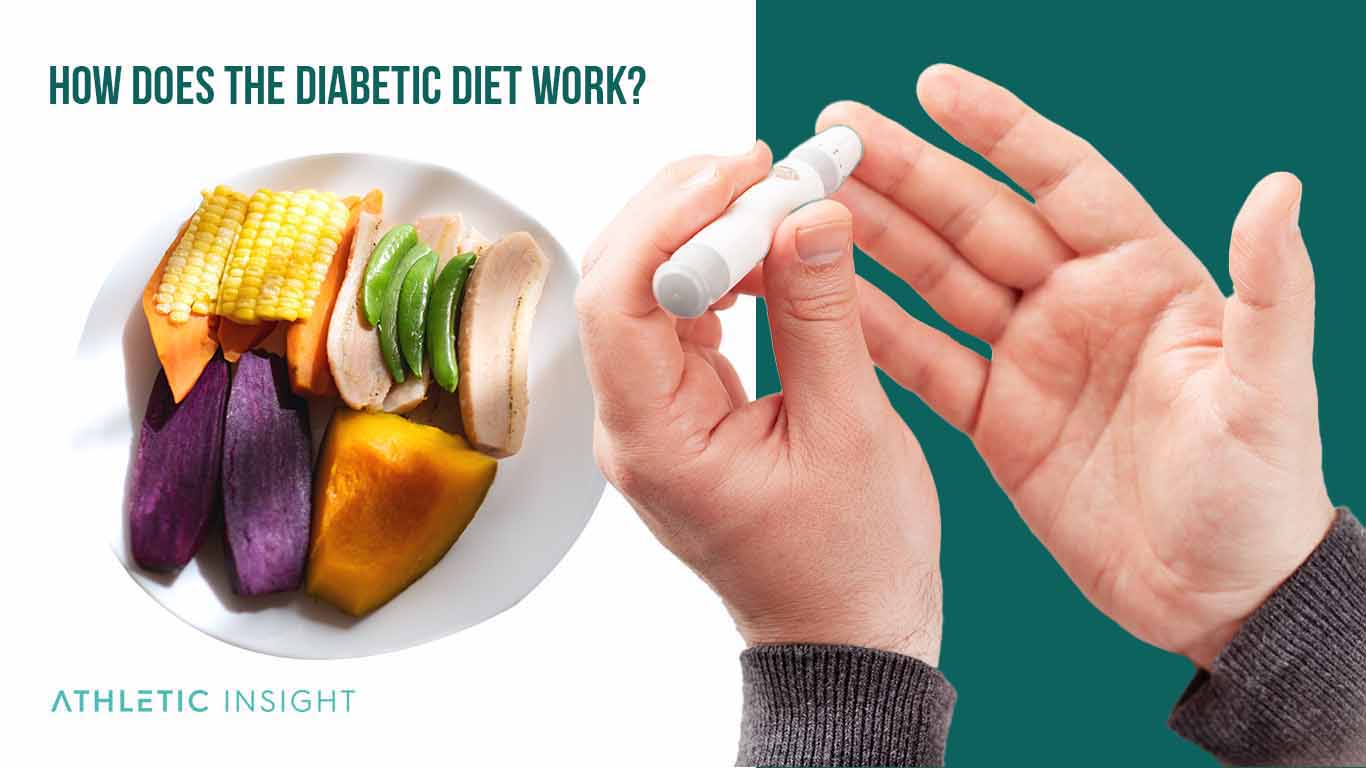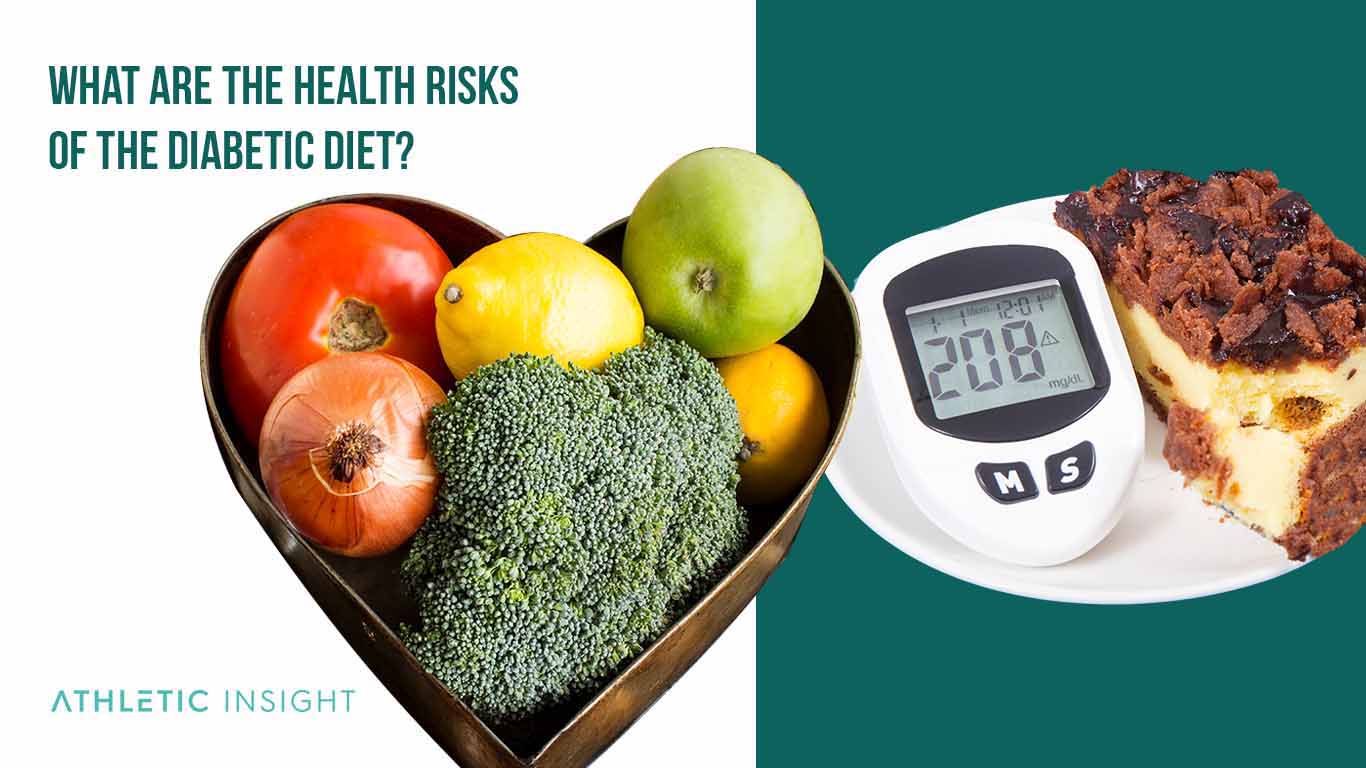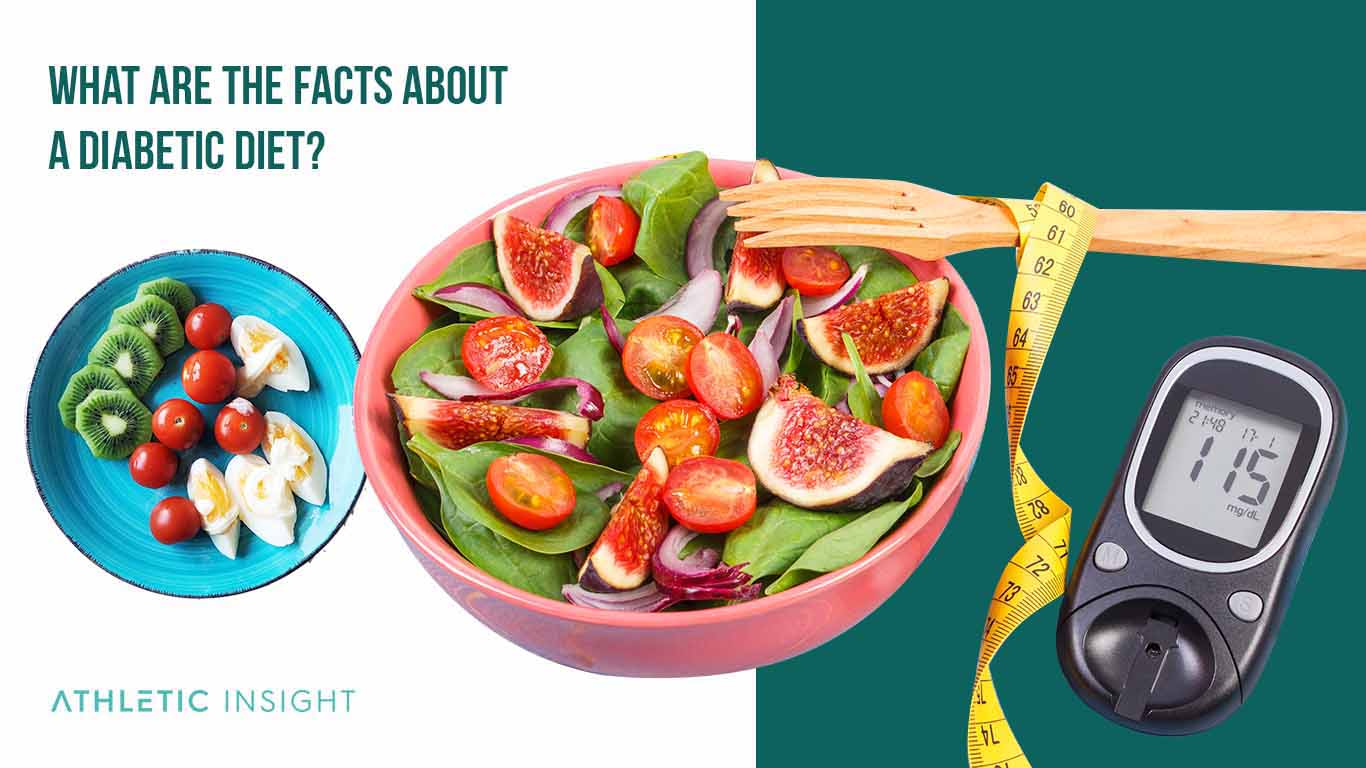If you or a loved one have recently been diagnosed with diabetes, you are probably wondering what kinds of foods are good for your health. Making the switch to a diabetic diet can be daunting. However, it is vital to keep your insulin and blood sugar at manageable levels and to protect your body from further damage.
While many different diabetic diets will work, there are a few that overlap in benefits and health. These usually include very few carbohydrates, lots of vegetables, and protein. The diabetic diet can be difficult to maintain, but it is ultimately worth it. It can be made easier to follow with a list of available foods and a ready-made meal plan.
How Does the Diabetic Diet Work?
Diabetes is all about controlling the blood sugar in your body. The main components of a diabetic diet are to ensure that your body can maintain a regular flow of blood sugar, it doesn’t get too high or too low, and that you keep a healthy weight.

Initially, a diabetic diet might cause you to lose energy and be sleepy. That is because the lack of regular carbohydrates and unhealthy sugars will cause your body to detox. However, after a while, you’ll be able to function normally on a diabetic diet.
These factors work within the diabetic diet no matter whether that’s for a gestational diabetic diet, a type 1 diabetic diet, or a type 2 diabetes diet. By eating the proper foods at the right time, a person with diabetes will be able to stay healthy. Knowing how your body reacts to the sugar levels in food is essential.
What Are the Health Benefits of the Diabetic Diet?
A diabetic diet has many health benefits. It’s a combination of healthy eating and proper timing and can benefit diabetics, pre-diabetic people, and those who want to eat healthier. Here are the health benefits of a diabetic diet.
- Good for heart health: this diet reduces unnecessary fats and helps the heart
- Keeps weight healthy: maintaining a healthy weight is essential for diabetics
- Reduces cancer risk: by not eating as much sugar or carbs, the risk of cancer will be lowered
- Prevents type 2 diabetes: for pre-diabetics, eating a diabetic diet will prevent the diagnosis
- Lowers blood pressure: the lower your blood pressure is, the easier it is for your heart to work.
- Decreases asthma symptoms: a healthier diet can help those diagnosed with both diabetes and asthma.
- Promotes bone health: the more calcium and healthy protein you eat, the stronger your bones will be.
What Are the Health Risks of the Diabetic Diet?
While the benefits usually outweigh the risks, a diabetic diet could cause health issues in some people. With diabetes, there is an increased risk of hair loss, stroke, and choline crisis (where the body reacts to too much salt in the diet).

These risks are not necessarily associated with the diet itself. If followed properly and tailored to individual carb counts, a diabetic diet will keep you healthy and guide your body away from these crises. However, bear in mind that a diabetic diet must be correctly followed. Otherwise, there is the risk that it could cause the body to go into shock.
How to Do a Diabetic Diet?
A diabetic diet is highly personal and should be arranged between you and your doctor. It should be tailored to your health needs, diabetes type, and personal carb count. Because each person is different, the carb and calorie count will vary depending on their specific requirements.
However, there are some general guidelines to follow when eating a diabetic diet. These are to keep a scheduled mealtime, stay under your carb count every day, and eat a good proportion of vegetables to healthy carbs and protein.
What Are the Foods That You Can Eat While on a Diabetic Diet?
Here are the foods you can eat while on a diabetic diet.
- Low carb Fruits, such as grapes, cherries, and plums
- Low carb Vegetables, like eggplant, onions, cauliflowers
- Grains: quinoa, brown rice, pasta, unsalted crackers
- Legumes, beans, peas, etc.
- Nuts low in carbs, like pecans, macadamia nuts, walnuts, and hazelnuts
- Seeds of most varieties
- Healthy fats found in avocados, vegetable oils, nuts
- Proteins: lean meats, eggs, seafood, poultry
These foods will help keep your body and blood sugar regulated. It’s essential to follow a proper diabetic diet food list to stay healthy with diabetes.
What Are the Foods That You Should Avoid While On a Diabetic Diet?
Of course, there are also many foods you should avoid while on a diabetic diet. Anything with high carbs will cause your body’s blood sugar to rise. It’s not just sugar that needs to be monitored—it’s also carbohydrates.
It’s easy to avoid carbs and sugar, but not when they’re hiding in other objects. Here are some foods to avoid in hard-to-spot categories.
- Meat: any red or processed meat
- Poultry: most poultry is fine
- Fish and shellfish: Fish and shellfish are fine
- Meat-based ingredients: meatballs, prepackaged food, bacon
- Eggs: eggs are okay in small amounts
- Dairy products: high-fat cheese, full-fat yogurt, or milk
What Are the Tips for Cutting Down on Sugar?
Reducing your sugar intake might be the hardest step, but it’s the most important. Some of the steps you can take include:
- Limit sugary drinks like sodas and juices
- Never use sugar as a saturated fat replacement
- Sweeten drinks and foods with a sugar substitute
- Always check the labels on the packaging before you buy
- Avoid any prepackaged or processed options
- Cut the sugar in recipes by half by ¼ to ⅓
- Find healthy alternatives to sugar-rich treats.
What Are the Ways to Reduce Unhealthy Fats?
You can reduce unhealthy fats by following these steps.
- Avoid eating out and fast food
- Avoid fried food
- Stay away from butter–use oils instead
- Read labels on packaged food
- Eat low-fat white meat instead of red meat
- Use avocados and other sources of healthy fat
Who Should Do the Diabetic Diet?
The diabetic diet is low in fats, carbs, and sugars and high in protein and vegetables. While this diet is essential for anyone who has diabetes already, it can also be advantageous for many others.
Patients diagnosed with pre-diabetes often turn to the diabetic diet to help regulate their insulin levels and prevent them from a diagnosis. There are also workout experts who follow the diabetic bodybuilding diet to build muscle and lose fat.
Anyone can benefit from consuming fewer sugars and carbs and focusing more on healthy calories and proteins. While the diabetic diet is vital for those who live with type one or two diabetes or pre-diabetes, it is also healthy for anyone.
What Are the Best Recipes for the Diabetic Diet?
Although it seems challenging to follow, there are many ways to eat well on the diabetic diet. Here are some recipe suggestions:
- Turkey stuffed bell peppers: low carb peppers stuffed with turkey and seasonings
- Shrimp avocado salad: a tasty salad with healthy fats and seafood
- Asian turkey lettuce cups: sweet and spicy turkey in lettuce cups
- Grecian pasta and chicken skillet: one-pan pasta and chicken meal
- Chicken butternut chili: a hearty soup with chicken and butternut squash
These are only a few suggestions for meals and recipes for a diabetic diet. There are many ways to continue eating well while staying healthy.
What Is a Sample Diabetic Diet Plan?
To successfully follow a diabetic diet, it’s essential to have a diabetic diet plan. Usually, these are weekly plans that are planned on the weekend and followed throughout the week. It can help to do meal prep for this time.
Meal prep involves making several meals ahead of time for the days that you will be busy. This helps you to stay focused on your diet and not go for an easier if more unhealthy option.
A diabetic diet plan revolves around your schedule and dietary needs. However, a sample might look like this. By filling out each section with your preferred meal and avoiding snacks, you should be able to schedule your meals at the same time every day and avoid blood sugar crashes.
| Sunday | Monday | Tuesday | Wednesday | Thursday | Friday | Saturday | |
| Breakfast | |||||||
| Lunch | |||||||
| Dinner |
What Are the Facts About a Diabetic Diet?
Here are some other facts about the diabetic diet that might interest you.

- The diabetic diet is naturally low in saturated fat and cholesterol
- The diabetic diet can be followed by anyone trying to watch their weight and carb intake
- The diabetic diet relies mostly on fresh foods and vegetables.
- The diabetic diet is often used by weightlifters or exercise gurus
- The diabetic diet can be gluten-free, dairy-free, and vegan
These are all true because the diabetic diet is completely customizable. It follows the individual’s dietary and carbohydrate needs to create a personalized diet for their lifestyle naturally low in saturated fat and cholesterol.
Is Diabetic Diet Considered a Healthy Diet?
The diabetic diet is considered a very healthy diet. It’s recommended by the CDC, the ADA (American Diabetic Association), and most doctors with diabetic patients. While it’s essential to check with your doctor, you can be assured that the diabetic diet is healthy.
Those who live on a diabetic diet will be eating more healthy food than regular dieters. Many health experts and diet culture leaders are turning to a similar diet for weight loss. While it’s not the best choice for everyone, the diabetic diet is extremely healthy for anyone trying to lose weight.
Is Diabetic Diet Expensive?
No, the diabetic diet does not have to be expensive. While it’s certainly not as cheap as buying pre-packaged food at the grocery or fast food places, the diabetic diet relies mostly on staples that can be found in any store.
The largest price issue you might run into is constantly buying fresh food. It is difficult to keep up with and often costs more to buy fresh groceries instead of canned or frozen vegetables and fruits. However, it’s possible to buy fresh food and freeze it yourself. This process will make it last longer and avoid preservatives added.
Is Keto Diet Good for Diabetics?
The keto diet is an entirely different diet from the diabetic diet and consists of a low-carb, high-fat diet. While the keto diet for diabetics might work sometimes, it depends on the type of diabetes and personal health issues of the patient.
The keto diet is great for slimming down and losing weight because of the low carb and calorie count. However, the high-fat aspect can be misused and result in weight gain. It’s essential to watch your cholesterol levels while on the keto diet because the foods are often high in substance.
Overall, however, it can be a good choice for diabetics. It is low in carbs and focuses on proteins and healthy fats if it’s done correctly. It can be an excellent introduction to the diabetic diet.
What Are the Types of Diabetic Diets?
There are three main types of diabetic diet: type 1, type 2, and gestational diabetes. Each of these types varies slightly, but most follow the same rules. There are also alternatives to the diabetic diet such as the ADA diet.
No matter what type of diabetes you have or are eating for, it’s essential to watch your carbs and sugar intake. Several diabetic diet types can be followed, but it’s always vital to listen to your physician and monitor physical health. What works for some diabetics doesn’t work for others. Diabetes is often paired with another chronic illness, and this can make eating more difficult.
For some, gluten or dairy is especially harmful and their diabetic diet must include more rice and other gluten-free grains. While it’s crucial to watch for carbs, the individual aspects of each diet are up to the patient and their doctor.



